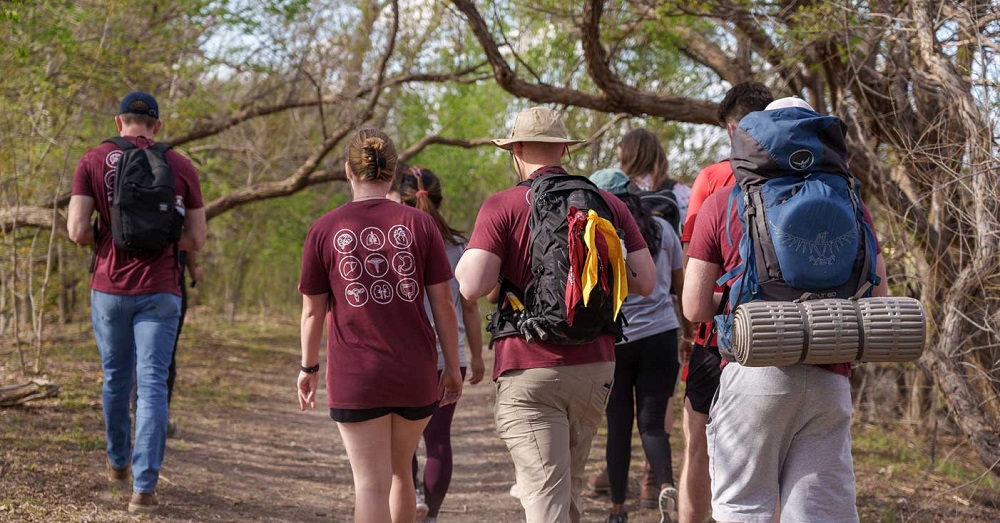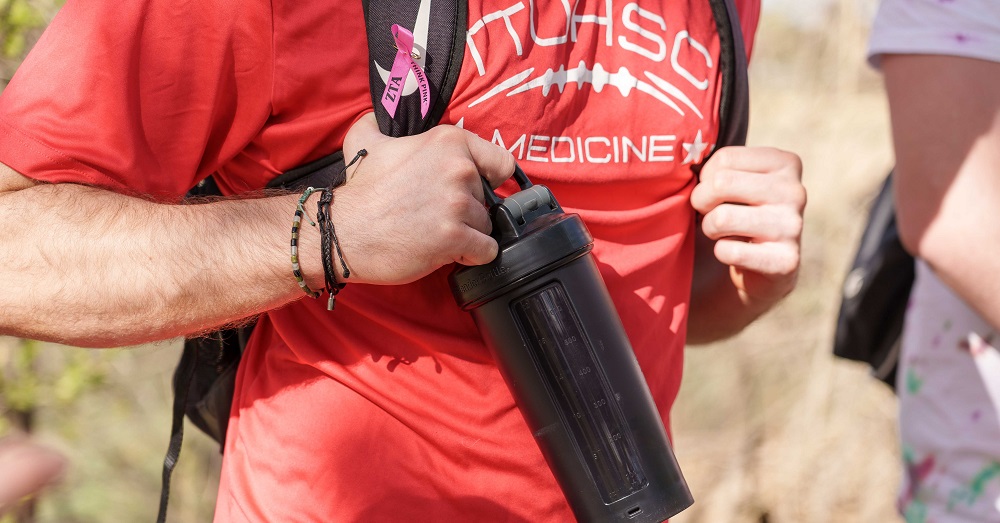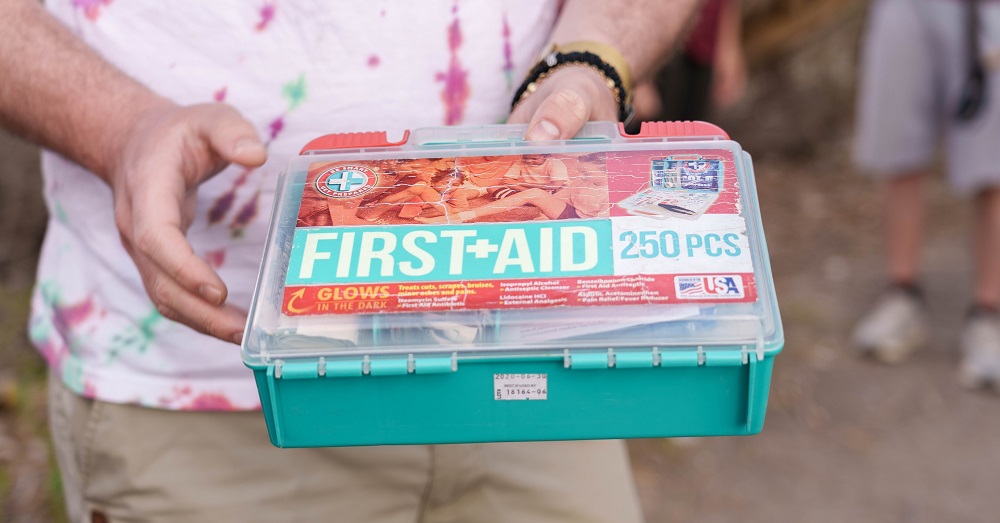TTUHSC Emergency Medicine Expert Shares Day Hike Tips
Preparation and planning help trips begin and end on the right foot.

Brian Kendall, M.D., suggests learning basic first-aid knowledge before hiking
“Be prepared” is not just the Boy Scout motto¬; it’s sound medical advice for day-hikers. Brian Kendall, M.D., Texas Tech University Health Sciences Center (TTUHSC) assistant professor of Emergency Medicine, said even for shorter hikes, that means having what you need to prevent and handle a variety of medical issues on the trail.
“I think having some basic knowledge before you go: what first aid is, either by watching a YouTube video or taking a class online, learning some of those basic first aid techniques,” Dr. Kendall said. “And then taking some of the supplies that you would need to treat those simple ailments.”
Dr. Kendall said a few essential items can cover a wide range of medical issues day-hikers might experience.
“I have a first aid kit that has a lot of different things in it: lots of gauze, bandages, and Ace wrap. You can use those for a lot of different things like making a sling, bandaging up a wound or helping to splint an ankle or a knee. I also have all sorts of different anti-nausea medicine and anti-itching medicine or cream, things for headaches and those types of things as well.”

Some essential items can cover a range of medical issues day-hikers might experience.
Blisters are more than an inconvenience for hikers. They can derail a trek on the trail. Preventive measures include avoiding cotton socks and protecting areas of the foot that are prone to sweat and friction. Duct tape or moleskin are recommended depending on if you’re hiking in wet or dry conditions. If a blister forms, Dr. Kendall advised to cushion it by cutting a hole its size in layers of moleskin pads up to the height of the blister, then cover the whole thing with more moleskin and secure it all with tape.
Some common mistakes hikers make can result in more serious medical problems.
“I think not wearing proper equipment. Not having proper footwear. Not knowing the
trail that they're going to be going on and the difficulty level that that trail is
going to be. I think not taking water is a big one, too.”
Dr. Kendall stressed hydration before a hike is as important as staying well hydrated
during the hike. Water alone is fine for a day hike, but he recommended carrying electrolyte
tablets to add to water on longer trips.

First aid kits contain gauze, bandages, Ace wrap, etc.
“That's what helps your body function at its peak performance. If you're dehydrated, your brain isn't going to be able to function as well, your heart won't be able to function as well, your kidneys won't function as well. That's going to decrease your physical performance on the hike.”
Being prepared for a day hike doesn’t have to weigh you down. Dr. Kendall said the duration, elevation and skill level required for a hike can serve as a guide to what’s necessary to carry in your backpack.
“Something that feels like 10 pounds at the beginning of a hike is going to probably double in weight, just the way it feels by the end of that hike,” Dr. Kendall said. “So, you want to pack as light as you can and take only the essentials. Take that first aid kit, take water and make sure that you have things like sunscreen.”
While backpacks are important, Dr. Kendall stressed backups are, too.
“I think the biggest issue that you can get yourself into the most trouble with is by hiking in an unfamiliar place without somebody else there with you. So always, when you go on a hike, make sure that you go out with a partner and make sure you know where you're hiking. And if there is an emergency that happens, know where you're going to go.”
Related Stories
The John Wayne Cancer Foundation Surgical Oncology Fellowship Program at Texas Tech University Health Sciences Center Announced
TTUHSC is collaborating with the John Wayne Cancer Foundation and has established the Big Cure Endowment, which supports the university’s efforts to reduce cancer incidence and increase survivability of people in rural and underserved areas.
Making Mental Health a Priority in the New Year
Sarah Mallard Wakefield, M.D., a psychiatrist with Texas Tech Physicians, talks about strategies to combat widespread and growing anxiety.
TTUHSC Dean to be Inducted into the National Academies of Practice as Distinguished Fellow
Gerard E. Carrino, Ph.D., MPH, dean of the TTUHSC Julia Jones Matthews School of Population and Public Health, will be inducted into the National Academies of Practice (NAP) as a Distinguished Fellow of the Public Health Academy.
Recent Stories
The John Wayne Cancer Foundation Surgical Oncology Fellowship Program at Texas Tech University Health Sciences Center Announced
TTUHSC is collaborating with the John Wayne Cancer Foundation and has established the Big Cure Endowment, which supports the university’s efforts to reduce cancer incidence and increase survivability of people in rural and underserved areas.
TTUHSC Receives $1 Million Gift from Amarillo National Bank to Expand and Enhance Pediatric Care in the Panhandle
TTUHSC School of Medicine leaders accepted a $1 million philanthropic gift from Amarillo National Bank on Tuesday (Feb. 10), marking a transformational investment in pediatric care for the Texas Panhandle.
Texas Tech University Health Sciences Center Permian Basin Announces Pediatric Residency Program Gift
TTUHSC Permian Basin, along with the Permian Strategic Partnership and the Scharbauer Foundation, Feb. 5 announced a gift that will fund a new pediatric residency.
